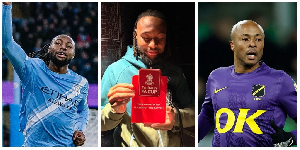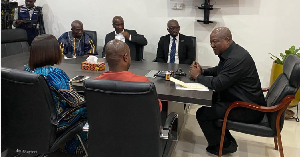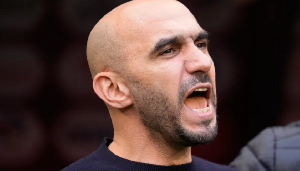Corruption has therefore become so normalized in the body politic as to defy moral logic and corrective dignation of the human person. Thus the culture of impunity takes over public psychology, gnawing at it and leaving a cancerous state in its stead. In this regard, those agitating for coup d’état and firing squads are missing the point. Human nature is more complex than the politics of ballistic penance. On another level one cannot simply deny or ignore the spiritual component of the corruptibility of human nature. There may even be an economic-genetic basis for corruption. This calls for a new kind of revolutionary politics in which a political platform that is not beholden to Ghana’s duopolistic polarities is given a chance to demonstrate a new and radical capacity for problem-solving. This is why some commentators are advocating a third force to replace the partisan duopolistic stranglehold on public psychology.
And it is not as if such a bold proposal or political enterprise of a mediating third political force is entitled to an easy means of execution. Such a theoretical third political force has a lot of work to do to convince the masses of the strategic viability of its ideological potentiation and therefrom, its capacity for transforming society as opposed to the architectonic dereliction of the two major parties.
THE AMERICAN EXAMPLE
A number of factors militate against the full blossoming of non-establishment political parties, whether the experience is in Ghana or abroad. Meanwhile, the seeming particularity of Ghana’s duopolistic political landscape is shared by other polities. In America, for instance, the Democratic Party and the Republican Party have collaborated in stifling the emergence of a third force. Both have used the courts to frustrate the emergence of a third force that potentially threatens their duopolistic dictatorship. Both parties founded the Commission of Presidential Debates, a non-profit organization to regulate presidential debates, with its primary aim of excluding third political parties from taking part in the only nationally televised presidential debates. A number of key American states have also successfully sued third parties to prevent them from making appearances on ballot. Third parties have also sued both major parties to have their way but, apparently, without much success.
Americans are gradually beginning to realize that their duopoly is a political charade, a one-party body politic. Polls conducted in the last twenty years or so continue to show a positive incremental gradient favoring a third party to challenge the creative monopoly of America’s partisan duopoly. Americans continue to hold the view that their two major political parties are corrupt, that both parties and their divisive politics somehow contribute to bureaucratic inefficiency and corruption and social polarization, and that both parties do not represent them. In a nutshell, these reasons undergird the evolving popular gravitation of public opinion toward a third party in the American body politic as revealed in opinion polls. In the final analysis, the very nature of America’s Electoral College itself makes the forceful emergence of third parties nearly prohibitively difficult.
Of course, America’s partisan duopoly is a deceptive cover for “dictatorship of the minority” or “tyranny of the minority,” an Orwellian phraseology for the political influence of its wealthy minority—corporatism. In a related context, Ghana’s partisan duopoly makes the forceful emergence of a third political party a near-prohibitive enterprise. Further, incumbency has the political advantage of bureaucracy and state resources at its disposal. The fractured or fragmented Opposition elements make it easier for the two major political parties to run roughshod over them. Also, the feeble and incorruptible character of public psychology, the political sycophancy of ethnic allegiances, the question of mass poverty, and the political illiteracy of the masses play to the gallery—of duopolistic partisanship.
WHAT IS AT STAKE
After all, we all know why the present Opposition has bought into the Machiavellian politics of scheming and dangerous pseudo-Nkrumahists like Freddie Blay, Kweku Baako, and Akufo-Addo. We also know why incumbency has bought into the opportunistic politics of quasi-Nkrumahist like Kwesi Pratt. Kwesi Nduom is as much an opportunistic, scheming and Machiavellian politician as Freddie Blay. Having said that, it is not our intention to advocate for the political emergence of the modern CPP per se. We simply want a coalition—a coalition of the Ghanaian Diaspora with profound technocratic expertise and patriotic members from the two major political parties—of a focused third force with ideological and practical investments in a strong political philosophy with deep taproots in policies of national development, patriotism, and national solidarity to replace Ghana’s partisan duopoly.
Namely, a coalition whose constitution does not necessarily elect Ghanaians to public office on ethnic considerations but on meritocracy, social justice, gender equality, patriotism, ethnic inclusiveness, industry, and sound technocratic expertise against the backcloth of public discourse and elective franchise. The Ghanaian media have an important role to play in all these. Such a coalition should not pander to that section of the sycophantic media with their Machiavellian partisanship, bought conscience, and general lack of reportorial criticality on many issues of national importance. For instance, soli, short for “solidarity” in the vocabulary of media politics, could potentially undermine critical and fair reportage on issues. It should be scrapped.
And reportorial criticality comes with a deep understanding of political philosophy, development economics, international relations, development sociology, macro- and micro-economics, law, sociology, mathematics, science and technology, critical and analytic thinking, reliability engineering, literature, critical theory, history, information technology, techniques of intelligence gathering, religion, technocracy, banking and microfinance, Afrocentric theory, urban studies, management science, politics, media criticism, environmentalism, industrialization, gender equality, quality mass education, globalization, and what have you.
CONCLUSION
We mention the media because they an important part of the problem, that of promoting partisan politics, political ethnocentrism, and political sycophancy, all potential menace to national security and internal cohesion. It is therefore essential that the coalition we have in mind should pursue a political philosophy that looks beyond the political ethnocentrism and ideological partisanship of corporate Ghana. It may help however help if this third force can make Nkrumahism its ideological fulcrum, with the support of the inclusion of other progressive ideologies. We hope Ghanaians reconsider our proposal and work hard to kick out the two major political parties. Getting the cabals and enclaves of kleptocrats from Ghana’s duopoly should be of primary concern to all well-meaning Ghanaians. There is also no reason why the Attorney General of Ghana should be glued to the Ministry of Justice. There is no point belaboring how this institutional marriage encourages bureaucratic corruption.
Let us therefore try a new political force, for it is high time we moved past the ideological parochialism of Ghana’s entrenched duopoly, a proposition that has taken so long to rear its head for popular consideration and adoption. In the end we may have to appeal to Ghanaians to do right by themselves, given that they know better other than merely paying servile homage to political parties that do not care about their plight, patriotism, human dignity, and national development, with the calculating commission of Ghana’s duopolistic manipulation of public psychology. We strongly believe that the era which saw the political methodology of duopolistic manipulation of the public conscience should be a thing of the past. Let Ghanaians show those two parties the door if they care for their future and the future of posterity. This is a generous dictate of common sense and moral sense. A wise man, they say, is the one who does not allow his balls to be stepped on twice.
How about the wise woman?
REFERENCES
1) Kwame Botwe-Asamoah. “Adieu To Dr. Nduom’s Machiavellian Tactics To Get Ahead In The CPP.” Modernghana. Feb. 25, 2012.
2) Kwame Botwe-Asamoah. “Fallacies Of J.B. Danquah’s Heroic Legacy.” Ghanaweb (Five Parts).
3) Kwame Botwe-Asamoah. “K.A. Busia: His Politics of Demagoguery, National Disintegration And Autocracy.” Ghanaweb. March 7, 2007.
4) Prof. Lungu. “By What Measure Did Ghana Grow 500% Under NPP, Dr. Bawumia?” Ghanaweb (Two Parts).
5) Prof Lungu. “Publish Justice Appau Commission Report On Judgment Debts, Mr. Mahama.” Ghanaweb.
6) Kobina Antobam. “Bawumia Is A Glorified Bean Counter.” Ghanaweb. Nov. 30, 2015.
7) Kwesi Adu. “Kufuor Dares Us, We Respond.” The Insight Newspaper. Jan. 9, 2014.
8) Solomon Kwawukume. “Ghana Lost $6.004 Billion In Oil Revenue, Five Years Into Oil Production.” Ghanaweb. Oct., 24, 2015.
9) Arthur Kennedy. “Chasing The Elephant Into The Bush: The Politics Of Complacency.”
10) Arthur Kennedy. “Stop The Violence In Our Politics.” Ghanaweb. Sep. 19, 2015.
11) Arthur Kennedy. “The Politics Of Vilification.” Ghanaweb. Sep. 20, 2015.
12) Kofi Kissi Dompere. “The Theory Of Categorial Conversion: Rational Foundations Of Nkrumahism.”
13) Kofi Kissi Dompere. “The Theory Of Philosophical Consciencism: Practice Foundations Of Nkrumahism.”
14) Taylor Tyler. “100 Ways Democrats And Republicans Are The Same.” IVN. Nov., 6, 2012.
Opinions of Monday, 28 December 2015
Columnist: Kwarteng, Francis














